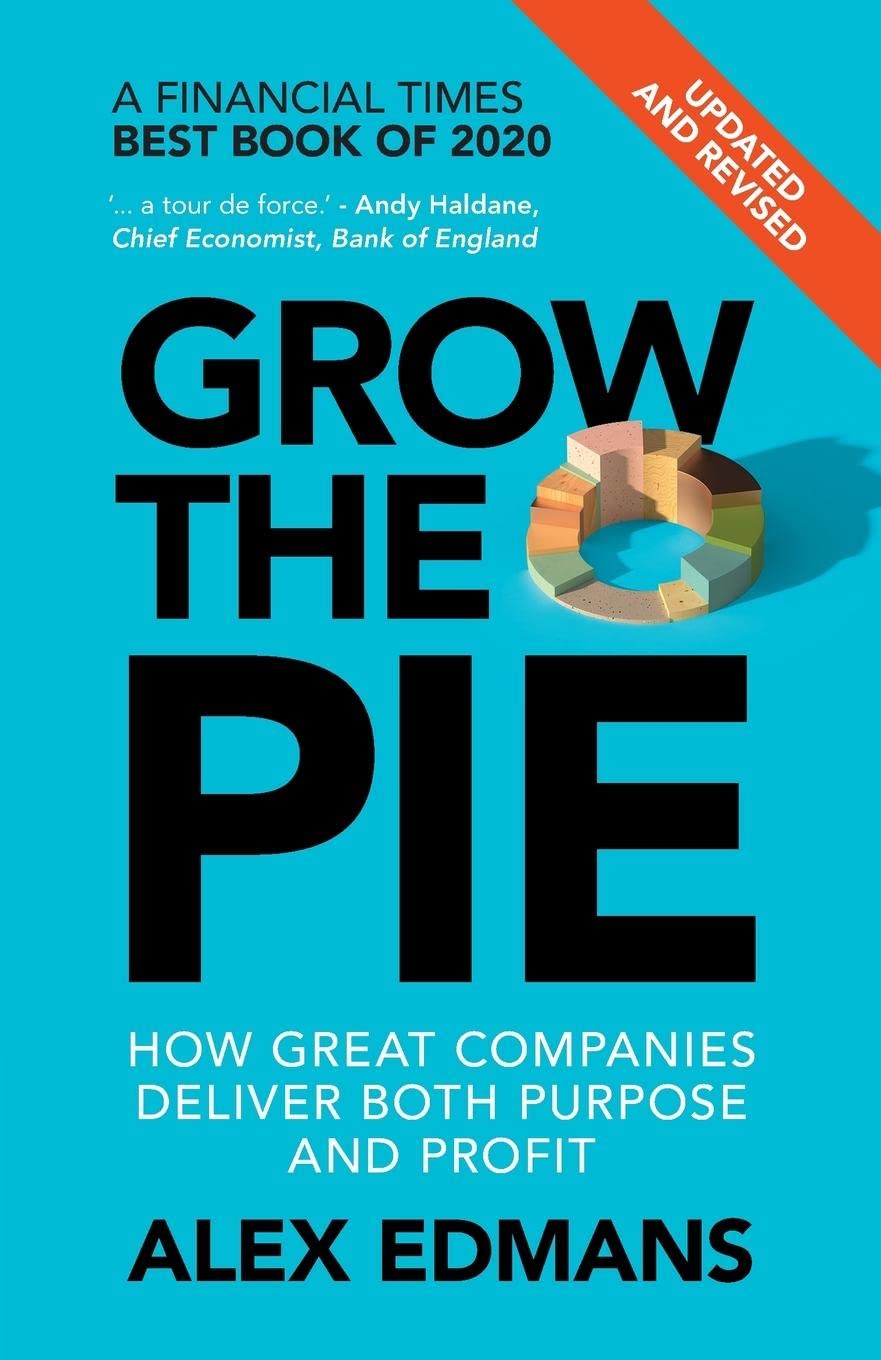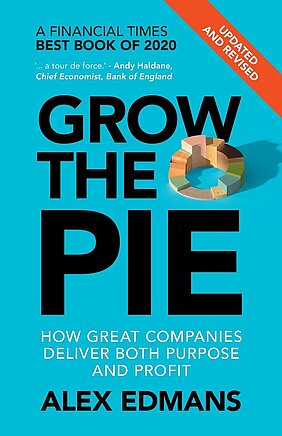This series of AM book reviews must include "Grow the Pie" by Professor Alex Edmans (London Business School), which was published in 2020 already. This was during the full grip of the Corona pandemic – but the book's contents has become even more relevant in the meantime: His point being that the choice between a company delivering value to society vs. producing profit is a false dichotomy. That is a question lurking behind almost every decision a Responsible Investor is taking.
Maybe the publication date in a time of major crises unfolding could not bring forth the publicity this book deserves. However, the logic of its arguments put forward in lifting shareholder and stakeholder value thinking to a new level remains on the forefront of ideas about how to develop capitalism and our economies. The book's first sentence is a hefty statement: "Capitalism is in crisis." We all have an impact on what makes good companies, be it as regulators, partners in the enterprise, customers – not as employees or consumers, according to Edmans. Last but not least as investors, be it via equity, or by providing credit via bond investing. We – that is Pareto Asset Management – have invited Prof. Edmans as keynote speaker to our first exclusive institutional investor event in Stockholm in April this year.
From the title of Edmans first book it becomes obvious that he is advocating an approach in management focusing on delivering purpose. He defines the "pie" as the aggregate of all benefits the company delivers. That is, not only financial profits – which are only one slice of the pie, being shared by a much smaller set of stakeholders. A dichotomy is indeed at the heart of his book, namely to differentiate between a "pie growing" and a "pie splitting" mentality.
Mentality is a good term, yet I think that it is not even strong enough for what he suggests replacing, namely the major management principle by advancing from "pie splitting" to "pie growing". His book is best in those parts in which he employs e.g. game theory or illustrates outcomes with examples from decision theory, showing how even Pareto optimal distributions can be "lifted" (maybe not amended), viz. by growing the pie instead of "slicing" it differently. Therefore, it is more about strategic approaches to business, and our cultural framework in which companies are but one constituent. The author argues that embarking on a pie-growing strategy may even increase the profitability. (Yet, growing the pie doesn't equate with indiscriminately growing the enterprise.)
Edmans follows quite a number of well-trodden paths in economics, yet discovers new perspectives along each way. We find his logic put to test in questions of balance sheet management, CEO pay levels, repurchase and buybacks arrangements, hedge funds and private equity firms impact on companies evolution, international trade, reporting and communication needs, distributional justice and injustice, and much more. All of that is presented with real-life examples. The author is conscious of the potential fallacies of anecdotal evidence vs. systematic research, therefore Edmans tries to bolster his claims with the latter.
It is somewhat difficult to locate the book's category (its purpose of course being to create publicity for the author's ideas, maybe a profit...): The reader will find philosophical forays into the fabric of capitalism, something of a management leadership guide, some managerial game theory, some advice for investment consultants and investors, and some very down-to-earth economic thinking – from a new, often very compelling angle. Correspondingly, it is not a simple task to critically review in brief such a protean paradigm, as outlined in this book.
A stimulating counterpoint to Milton Friedman's dictum "The social responsibility of companies is to increase its profits." We have come a far way since 1970, and are orbiting different trajectories today. It will remain for the reader to check whether we have some circular reasoning here: if companies increase – so to speak as a potential consequence – the profits by engaging in producing social value, they would do so anyway, based on Friedman's maxim (i.e. based on a "pie-splitting" mentality). Dear reader, check out the book, embrace the philosophy, and challenge the manifold theses yourself.

Das Buch: "Grow the Pie. How Great Companies Deliver Both Purpose and Profit"
Cambridge University Press, 2020. 371 S.
Der Autor: Alex Edmans
Der Rezensent: Dr. Oliver Roll ist Niederlassungsleiter Deutschland der norwegischen Pareto Asset Management und aktiv als Strategie- und Vertriebsberater (4AlphaDrivers).
Review - Alex Edmans: "Grow the Pie. How Great Companies Deliver Both Purpose and Profit"


Dr. Oliver Roll's review of "Grow the Pie"
